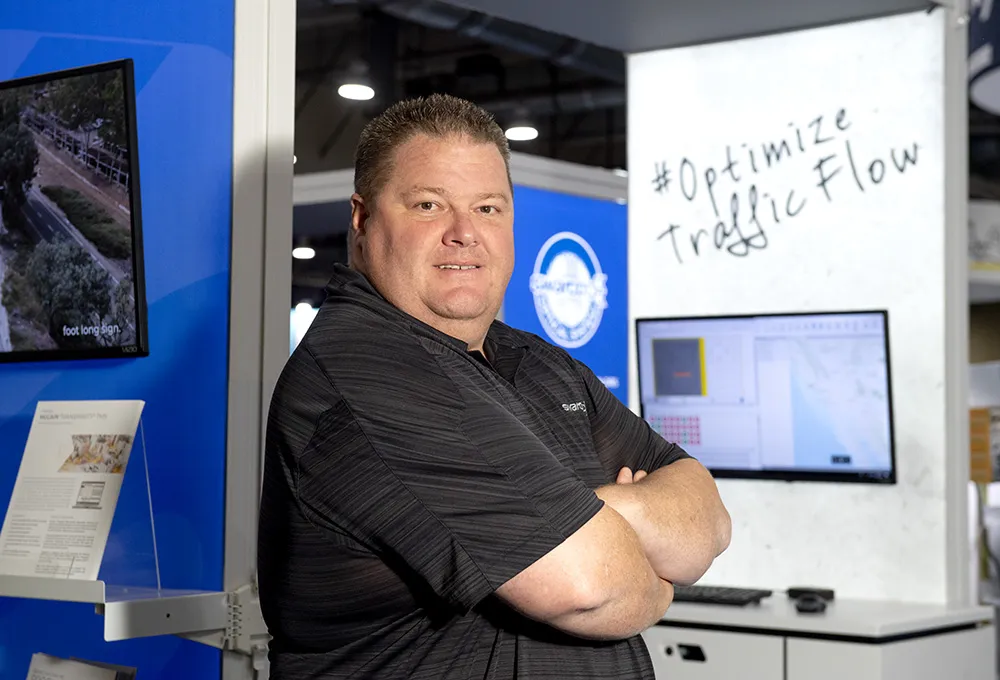Google’s smart cities research unit Sidewalk Labs has partnered with Transportation for America (T4A), an alliance of elected, business and civic leaders in an initiative to engage cities in developing efficient and affordable transportation options. The two organisations will work with dozens of US cities to define how technology can help them meet their pressing transportation challenges. This collaborative aims to help local leaders get more people where they want to go quickly and affordably, enhancing
June 6, 2016
Read time: 2 mins
Google’s smart cities research unit Sidewalk Labs has partnered with 2039 Transportation for America (T4A), an alliance of elected, business and civic leaders in an initiative to engage cities in developing efficient and affordable transportation options. The two organisations will work with dozens of US cities to define how technology can help them meet their pressing transportation challenges. This collaborative aims to help local leaders get more people where they want to go quickly and affordably, enhancing liveability and sustainability, by harnessing powerful data and the availability of new digital tools.
The partnership will build on Sidewalk Labs’ expertise in working with cities to develop digital technology that solves big urban problems, combined with Transportation for America’s experience in collaborating with state and local governments to develop forward-looking transportation and land use policy.
Through the partnership, T4A will launch an in-depth study on the state of current transportation policy and technology in American cities, and build a peer-learning collaborative of city leaders to define and design the ‘connected streets’ of the future. They say connected streets will advance the concept of complete streets into the digital realm.
Just as the complete streets framework gives local leaders the policy tools to improve the safety and equity of streets for all users across all modes, connected streets offers tech-enabled interventions that can support local efforts to move people more seamlessly, efficiently, and affordably. Connected streets can help create a truly balanced, multimodal approach to urban transportation that expands access to job opportunities and improves quality of life across a city.
Sidewalk Labs announced in March that it is building a new transportation coordination platform called Flow, in partnership with the324 US Department of Transportation and seven finalist cities from the DOT’s Smart City Challenge. The Flow team has met with all the finalists to understand the challenges they face and what tools might help them meet their goals for creating efficient, sustainable, equitable, and safe transportation systems. The winner of the Smart City Challenge will be announced in June, and will receive Flow at no cost.
The partnership will build on Sidewalk Labs’ expertise in working with cities to develop digital technology that solves big urban problems, combined with Transportation for America’s experience in collaborating with state and local governments to develop forward-looking transportation and land use policy.
Through the partnership, T4A will launch an in-depth study on the state of current transportation policy and technology in American cities, and build a peer-learning collaborative of city leaders to define and design the ‘connected streets’ of the future. They say connected streets will advance the concept of complete streets into the digital realm.
Just as the complete streets framework gives local leaders the policy tools to improve the safety and equity of streets for all users across all modes, connected streets offers tech-enabled interventions that can support local efforts to move people more seamlessly, efficiently, and affordably. Connected streets can help create a truly balanced, multimodal approach to urban transportation that expands access to job opportunities and improves quality of life across a city.
Sidewalk Labs announced in March that it is building a new transportation coordination platform called Flow, in partnership with the










